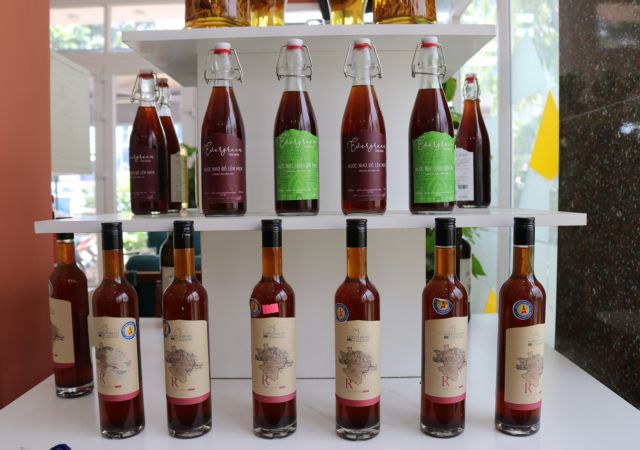By August 2023, the number of OCOP products has reached 8,478, of which 65.4 per cent were awarded three stars, 33.4 per cent four stars, and 0.2 per cent five stars.

Products in the One Commune One Product (OCOP) Programme have grown in number over the past few years, but so quickly that it has led to brand confusion among customers.
Nguyễn Trọng Nghĩa, director of Saigon Asset, said the number of OCOP products in the market had reached nearly 10,000, overwhelming customers with too many options, often overlapping ones.
He took green-skin pomelos as an example, which both Bến Tre Province and the Central Region had proclaimed as their "local speciality". Because the fruits are registered with two separate trademarks, customers can hardly tell the difference between them.
The director, therefore, called for a more meticulous selection process in the OCOP Programme to ensure each OCOP product is unique on its own and embodies the culture of its province of origin.
For hand-made OCOP products, he was against the idea of mass-producing them by machinery because automation, he believed, would ruin their artisanal uniqueness.
Deputy Minister of Agriculture and Rural Development Trần Thanh Nam said the OCOP Programme was initiated with the aim of improving the income of local producers, kickstarting the formation of production hubs, and increasing brand awareness for local products.
He also said the panel in charge of evaluating OCOP products consists of multiple agencies, including provincial departments of agriculture and rural development. The products will undergo periodic re-evaluation every three years to ensure they remain up-to-standard.
"If an OCOP product is losing its brand awareness, it is losing everything," said Nam.
The deputy minister also suggested the establishment of a team to examine the status of OCOP products periodically. Currently, a product recognised as OCOP can keep the status for up to 10 years, which Nam believed to be "too long".
Nguyễn Hoàng Anh, director general of Nam Miền Trung Group, underlined the role of the OCOP Programme in promoting Việt Nam's agricultural sector. He said the programme was gaining traction in the country because 65 per cent of its population lives in rural areas.
He urged the OCOP Steering Committee to raise the bar on OCOP products to prevent overlapping and loss of brand awareness. He also called for more trade promotion activities to help them gain ground commercially.
By August 2023, the number of OCOP products has reached 8,478, of which 65.4 per cent were awarded three stars, 33.4 per cent four stars, and 0.2 per cent five stars. OCOP producer status has been granted to 4,351 local facilities.
On the downside, 25 products have been stripped of OCOP status in Đồng Tháp Province. The number was nine for Cà Mau, seven for Lào Cai, and six for Sơn La. — VNS





